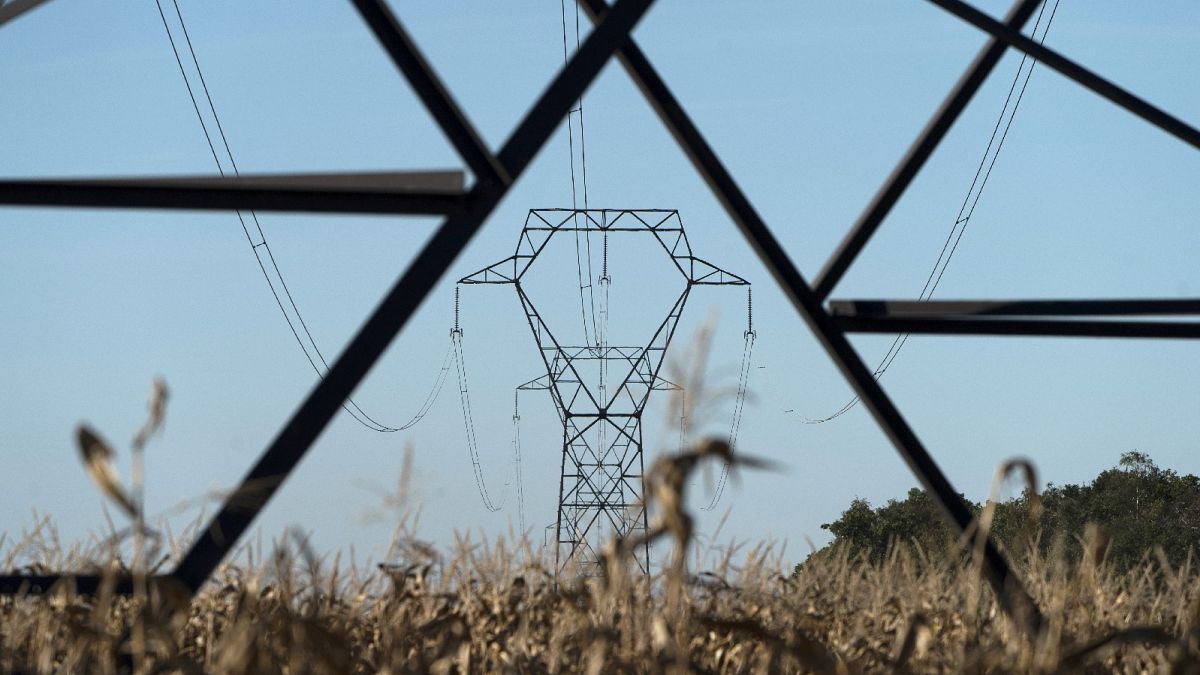Estonia, Latvia and Lithuania have agreed to speed up their integration into the European Union's electricity system in order to desynchronize from the Russian power grid.
The three Baltic countries, which are EU and NATO members, still remain a part of the Soviet-era BRELL power system that also includes Belarus and whose frequencies are controlled by Moscow, leaving them vulnerable to possible energy weaponisation by the Kremlin.
All three agreed in 2018 to decouple from Moscow and join the EU's system by the end of 2025 but Russia's full-scale war on Ukraine prompted calls to accelerate the timeline. An agreement struck this week by their respective electricity transmission system operators will now see them fully separate from BRELL in February 2025.
The countries' leaders signed the deal on Thursday and said in a statement that their synchronisation with the Continental Europe Network "holds strategic importance not only for us but for the entire European Union" and that the continued reliance on the BRELL system "is a threat to the Baltic States' energy security".
"We stress that it is of utmost importance for the Baltic States to act together in the synchronisation project. We must remember that we share a common adversary beyond the eastern border, and maintaining Baltic unity in the current geopolitical situation is particularly crucial," they added.
European Commission chief Ursula von der Leyen welcomed the announcement, writing on X, also known as Twitter, that "this will further reinforce the strength and resilience of the EU's electricity grid, and our energy independence overall."
Energy Commissioner Kadri Simson said "this historical agreement" will see the three Baltic countries join the EU electricity grid "almost one year earlier than previously intended."
"Today’s agreement is a symbol of European solidarity in action. The project will not only bring energy security in the region and complete the EU integration of the three Baltic States, but will also support the implementation of the Green Deal by ensuring secure, affordable and sustainable energy for the Eastern Baltic Sea region and the Union as a whole," she added.
The three countries are now connected with European partners through electricity lines with Poland, Sweden and Finland. Lithuania, meanwhile, is already independent from Moscow having stopped importing any Russian energy products, including electricity, in late May 2022 in response to its invasion of Ukraine.
Under the agreement, the Baltic countries will jointly withdraw from their BRELL contract in the summer of 2024, half a year before synchronisation with the EU's system.
Rokas Masiulis, CEO of Lithuania operator Litgrid, said in a statement that the three national operators "agreed on specific actions and dates for disconnecting from the Russian system and joining the Continental European Synchronous Zone,"
"For the first time, the operators of the three countries jointly assumed clear obligations to perform synchronisation at the agreed time – February 2025," he added.
Ukraine and Moldova successfully disconnected their electricity systems from the Russian-operated network they were linked to within three weeks of Russia's invasion of Ukraine in late February 2022.
Both were initially scheduled to join the Continental Europe Network early this year.
